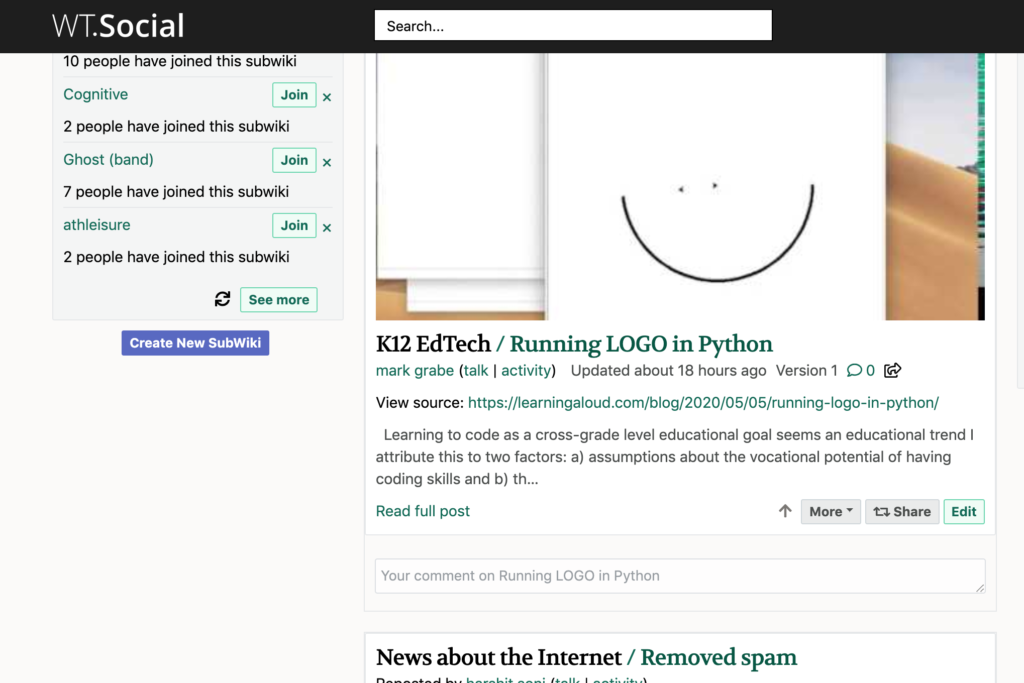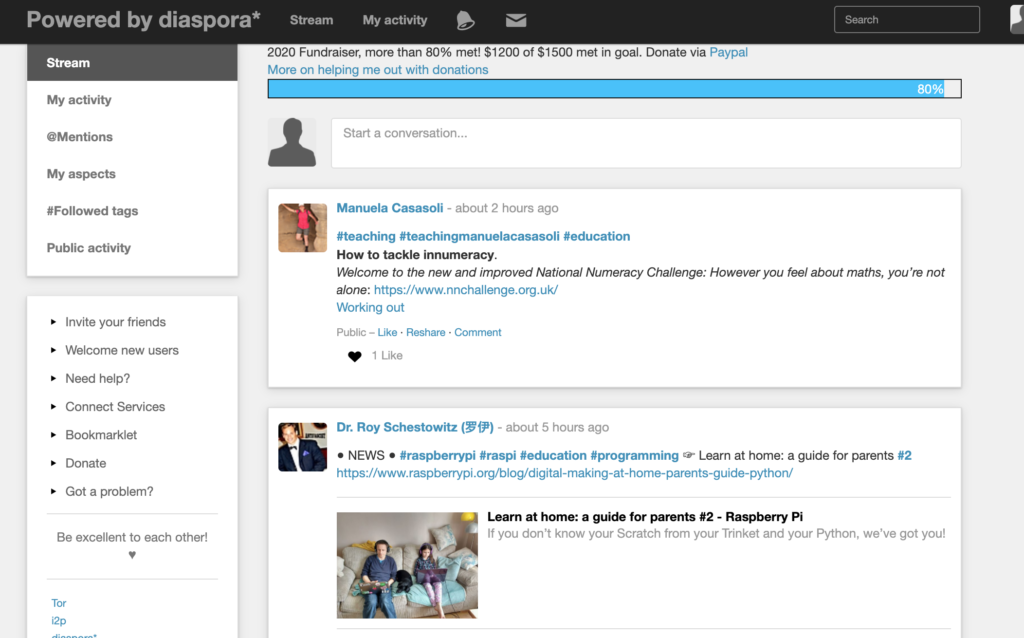I encourage people to participate in social media experiences other than Facebook and Twitter. I have a general issue with platforms that approach monopoly status as this gives these platforms too much power and limits innovation within a given sector of the economy. I like to spend some of my online time with platforms that don’t depend on ad revenue and the collection of my personal information. I admit it is a struggle because folks don’t like to make such changes and become comfortable with the social group they have on dominant platforms.
Here are a couple of suggestions for alternative platforms.
Wt:Social is a Facebook alternative developed by Jimmy Wales. It has a general feed like Facebook that provides access to posts from individual subwikis a user joins. I am not certain why the wiki label is used to describe these interest groups. Users can collectively modify posts if the original author designates a post for that purpose, but most posts are intended to be static with attached comments from other users. This post from LifeWire provides a nice overview of this platform.

I admit I have been a bit discouraged with the social experience to this point. The technology itself is great, but subwikis that sound interesting often have many members, but few posts. I have not had much luck attracting others to a subwiki I started, but I am sticking with it. I mostly cross-post things so I see this an effort to get Wt:social going. If you give wt:social a try, search for your interests and join a few subwikis to get started. Make certain you post and comment.
My second interest has been diaspora. This project is based on a federated model. So, there are multiple sites running the diaspora software. You join one or more that interest you, but you can also experience a public feed combining the content added to the multiple sites. This seems a great idea, but the public feed is too big and too random. I haven’t really found a site focused on educational issues which would be what would be of greatest personal interest. I thought about hosting a site, but the way the software is developed it would too difficult for me to implement on my server space.

![]()

Mark, you said, “I am not certain why the wiki label is used to describe these interest groups.” I think the reason is because Mr. Wales sought to lead (mislead?) the public to believe that WikiTribune would be successful like Wikipedia, because they both start with the same four letters, and (to a real and reasonable extent) the software does allow the public to edit the content, or to revert such edits. He was also probably accustomed to calling communities of interest “wikis” from his brief time with Wikia (now Fandom).
Wt:social allows two kinds of posts – collaboratively and individually. As I understand the difference, individually does not allow editing/elaboration of the original post, but would allow comments.
Are you a wt:social user? I like the site, but have struggled to find much activity on the topic I most want to explore.